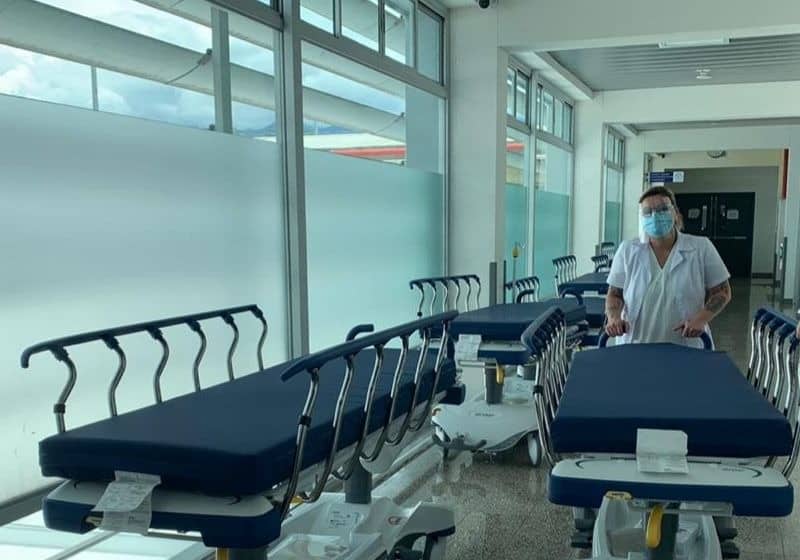As of January 11, the Costa Rican Social Security Fund (Caja Costarricense de Seguro Social) reported 212 patients hospitalized for covid, 150 in the ward and 62 in intensive care units (ICU).
People hospitalized for covid, regardless of their vaccination schedule, have associated risk factors, mainly diabetes, hypertension and obesity, in addition to being mostly people aged 50 years and older.
One of the most important differences between people with a complete vaccination schedule and those without vaccines is that while people with two doses have an average stay of 9 days versus 32 days for people without any dose.
Susana López Delgado, head Statistical Analysis, explained that the data show that having a complete vaccination schedule is an effective element that lessens the need for intensive care.
Susana Lopez said “Unvaccinated people are 8.6 times more likely to require hospitalization in intensive care and 3.68 times more likely to die, a finding that according to the Epidemiological Surveillance Sub-area of the CCSS reflects the contribution of the vaccination process and urges to follow the indications to continue vaccinating to avoid severe disease and death.
The data show that, among those hospitalized in the ICU, 27.4% were not vaccinated, while 4.8% had an incomplete vaccination schedule and 1.6% had received their vaccination less than 15 days before; that is, their bodies were in the process of developing defenses against covid-19.
In the case of those hospitalized in the ward, 38% were not yet vaccinated against covid-19, 3.3% had an incomplete vaccination schedule, and 0.7% had less than 15 days to complete their immunization schedule.
The 34.4% of patients hospitalized for covid are not vaccinated according to the report of the Health Statistics area of the institution.
In the case of San José, the Central and Pérez Zeledón cantons have the most hospitalized patients and in the case of Alajuela, San Carlos is the one that contributes the most.
CCSS epidemiologists continue to insist on the need for people living in Costa Rica to maintain their protective shield against covid-19. It is important to continue with hand washing, physical distancing, use the mask correctly and promote the ventilation of closed spaces when there is any kind of family gathering.






